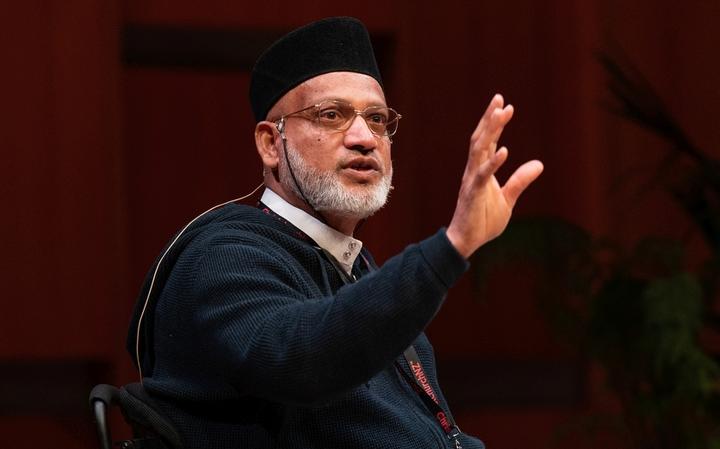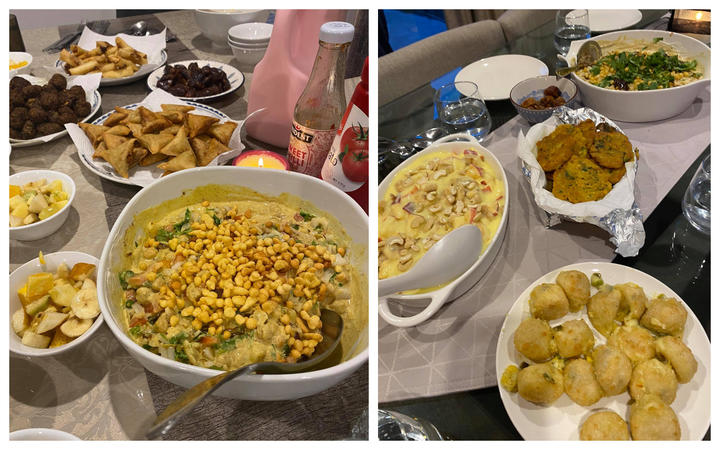
The festival involves a month of fasting where believers do not not eat or drink anything during daylight hours.
For Muslims in New Zealand, it has been the first time in two years Ramadan has happened uninterrupted, following the mosque attacks on 15 March 2019 and then Covid-19 last year.
Spending an evening with the family of Christchurch mosque attack survivor Farid Ahmed during iftar - the breaking of the fast after sundown - he explained the significance of the festival.
It's just gone past 5.30pm and the sun is setting, which means it's time to eat. Tonight's iftar meal starts with dates to officially break the fast followed by chickpea, potato, fish and chicken curries, rice, dahl, home made-mince pies and pasta.
Often food is cooked by family and friends to share and at mosques people can sponsor meals for an evening for large groups.

Elderly, children, anyone sick as well as pregnant or menstruating women are exempt.
The month of Ramadan begins with the first sighting of the new Moon.
With the lunar calendar about 10 days shorter than the Western, Ramadan migrates to different dates each year.
The month is very spiritual for Kiwi Ayesha Corner who converted just over 20 years ago.
"Initially I thought not being able to have a glass of water I would die. But now, it's not too hard at all. I love Ramadan. It helps me to think about how to treat others," she said.
Compared to any other many cities else in the world, Christchurch - with its short daylight hours - has the narrowest window of fasting.
It is still tough though.
Fasting teaches Muslims self-control and the religious practice is supposed to foster discipline and prayer, but there's also a sense of community and a shared experience, Farid said.
Eid al fitr will take place this evening which is the Festival of Breaking the Fast marking the end of Ramadan.
"The day of Eid - everyone eats all day, it's like food for miles. People cook special foods, and some of it is just too much. But it's more about celebrating the spiritual side of it for me I think," Corner said.
For Farid, with this particular Ramadan, he has chosen to focus on letting go of the horrors of March 15 and has come out the other side of his "healing journey, holding onto hope".
His wife, Husna, was among the 51 killed during the shootings.













